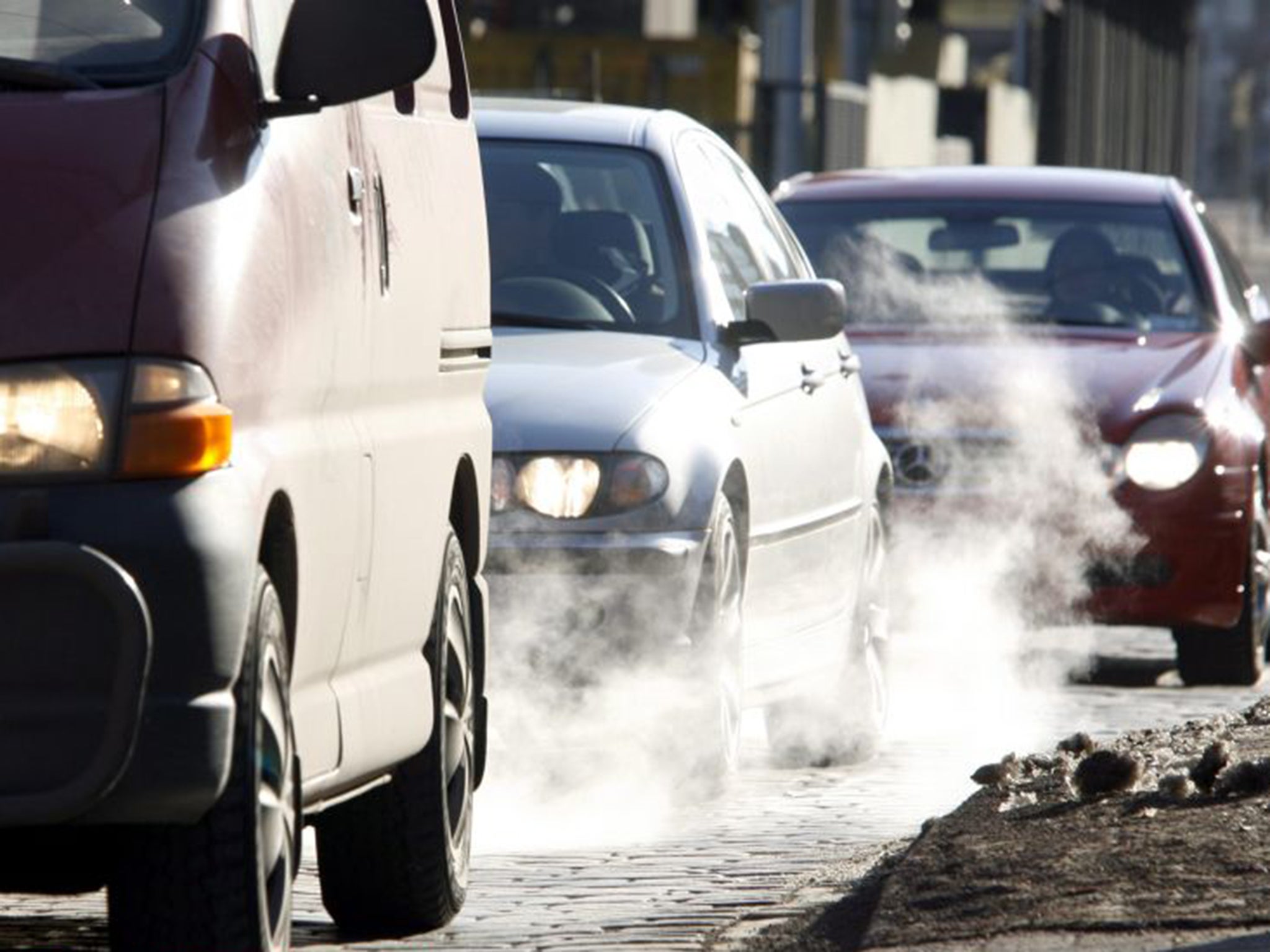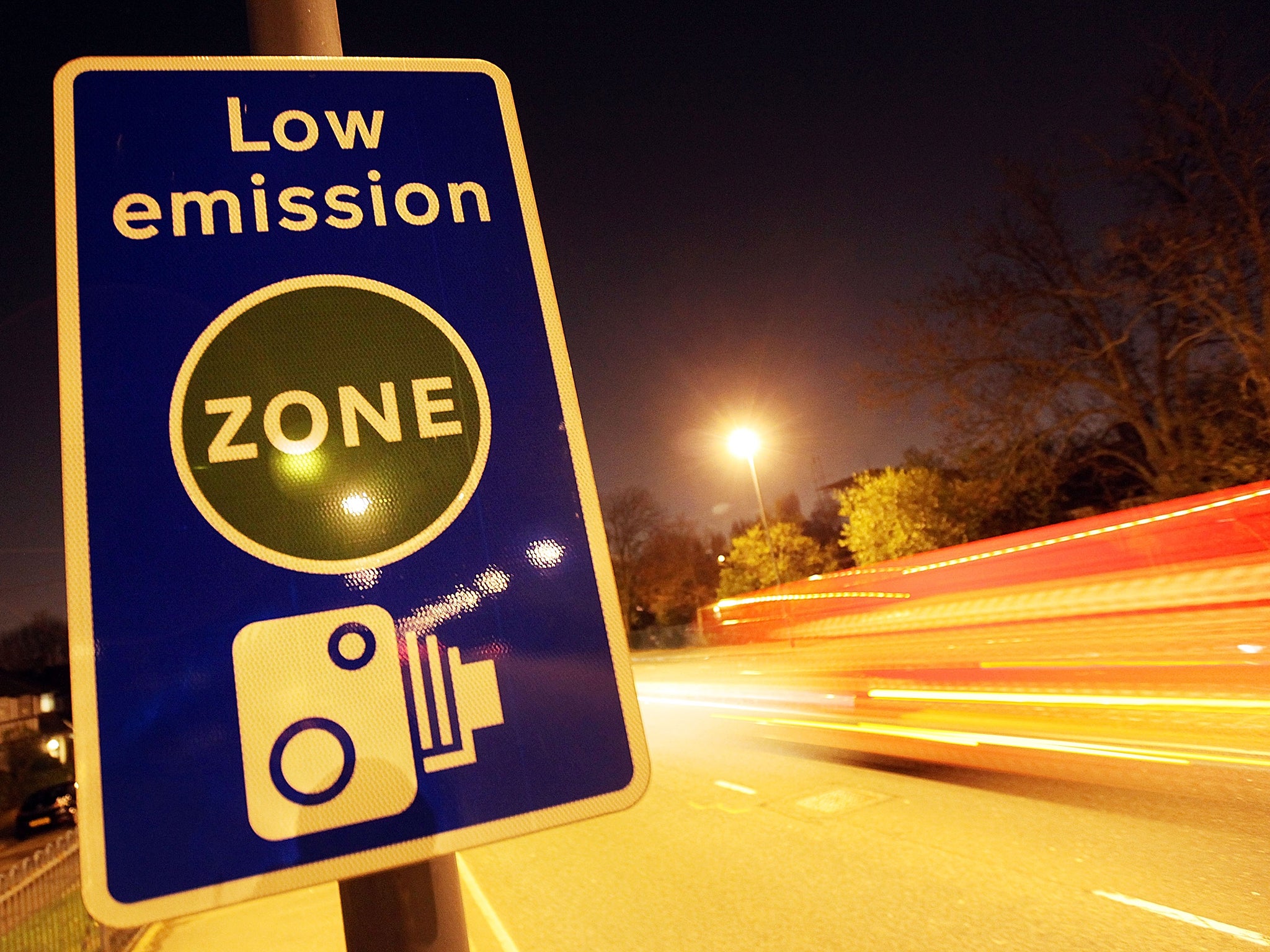Stop building schools, hospitals and care homes near air pollution blackspots, say MPs
Damning report stresses that 29,000 deaths a year are attributed to air pollution, and that over a thousand schools are only 150 metres away from major roads

A ban on building schools, hospitals and care homes near air pollution blackspots must be introduced to help cut thousands of deaths connected to the “invisible killer” of traffic fumes, MPs say today.
More than 1,000 existing schools must also be fitted with air filtration systems in classrooms to protect pupils from car exhaust fumes, a parliamentary report has recommended.
With air pollution thought to contribute to 29,000 deaths a year in the UK, the Environmental Audit Committee warns that young people are at risk of lung damage as a result of the nitrogen dioxide that is a by-product of motor engines. It has been suggested that the toxin could also increase infant mortality.
“Well over 1,000 schools around the country are 150 metres away from major roads,” said Labour MP Joan Walley, who chairs the committee. “Protecting children and vulnerable people in the worst affected areas must be made a priority by Government and local authorities.
“Ministers must pluck up the political courage to take the politically unpopular decisions necessary to get the most polluting vehicles off the road and encourage more people to walk, cycle or take public transport.” The MPs criticise the Government for failing to act on earlier warnings their committee has issued about the dangers from air pollution and say a generation is at risk of having its health “seriously impaired” as a result.
“New figures suggest air pollution from heavy traffic could be killing almost the same amount of people as smoking in the UK yet the Government seems unwilling to put saving lives before economic growth,” added Ms Walley.
The MPs argue that the Government has consistently failed to meet European Union air quality targets in UK cities. Some are not expected to reach the minimum requirement until 2030 at the earliest, they add.
The European Commission launched legal proceedings against the Government in February for failing to deal with the problem, which has been called “perhaps the longest running infringement of EU law in history”. The UK Supreme Court has previously ruled that the Government is failing in its legal duty to protect people from the harmful effects of air pollution.

“Meeting EU standards should be the minimum requirement,” said the committee. “Regardless of EU rulings it is unacceptable that UK citizens could have their health seriously impaired over decades before this public health problem is brought under control. Urgent change is needed in transport and planning policy to save lives and ensure that the UK meets European safety much sooner than the expected dates indicated by the Department for Environment, Food and Rural Affairs.”
The MPs cite figures from Clear Air in London estimating there will be 6,851 deaths in the city in 2020 and 6,422 in 2025.
A national framework of low emission zones should be introduced in the way they have been set up in London, argue the MPs. The report, Action on Air Quality, also calls for vehicle excise duty to take into account nitrogen dioxide as well as carbon levels.
Other key recommendations include looking at financial incentives for more environmentally friendly vehicles and updating building regulations to ensure any new school that is sited near to a major road is fitted with an air filtration system as well as the 1,000 already sited near major roads.
Simon Gillespie, chief executive of the British Heart Foundation, said: “Exposure to certain pollutants can have a devastating impact on people with heart conditions, increasing their risk of a heart attack. Yet the UK continues to flout legal air pollution limits.
“The Government cannot continue to ignore this issue. We knew that our pollution was harmful to our hearts when the last report came out. Now the evidence is stronger. Enough is enough.”
Sian Berry, of the Campaign for Better Transport, argued: “Road ministers need to respond urgently to the recommendations of the committee and amend the Infrastructure Bill to meet their legal obligations to reduce air pollution as soon as possible.
“They can no longer simply brush aside the effects of their road-building plans in the desperately bad air pollution we already suffer in our towns and cities.”
Barry Gardiner, shadow minister for the natural environment, said: “Air pollution is a public health crisis that contributes to the deaths of tens of thousands of people each year and yet this Tory-led Government has failed to tackle the problem.
“The committee’s report is a thorough and comprehensive assessment of Government inaction on air pollution and it fully backs Labour’s commitment to deliver a national framework for low emissions zones.”
A spokesman for the Department for the Environment, Food and Rural Affairs said: “Clean air is vital for people’s health and while air quality has improved significantly in recent decades, we are investing heavily in measures across government to continue this, committing £2bn since 2011 in green transport initiatives.
“We continue to support local authorities in identifying the best solutions for their area and sharing best practice. Government further supports these efforts through our air quality grant scheme. We will be responding to the report fully in due course.”
Additional reporting by Laurna Robertson
Join our commenting forum
Join thought-provoking conversations, follow other Independent readers and see their replies
Comments
Bookmark popover
Removed from bookmarks